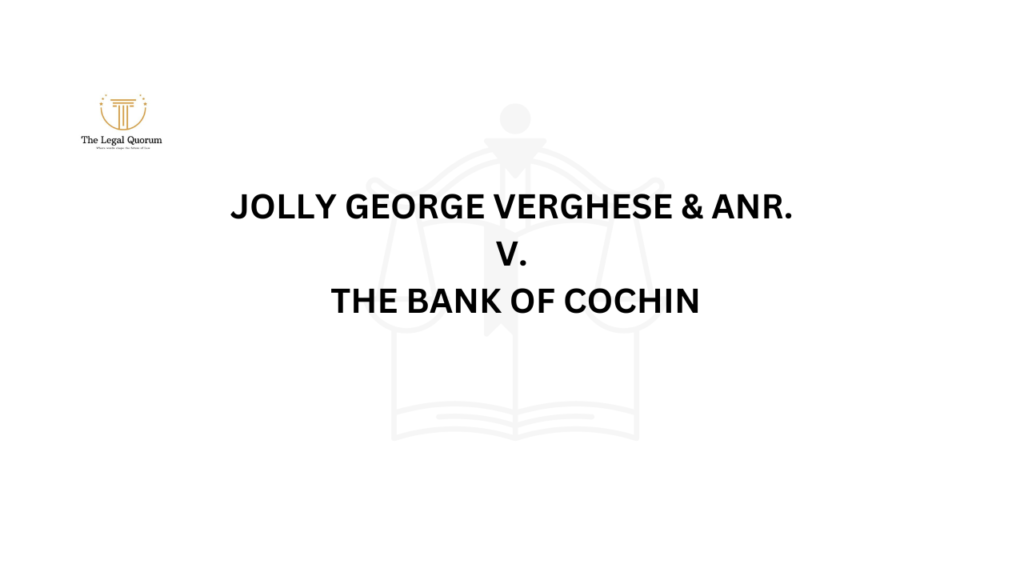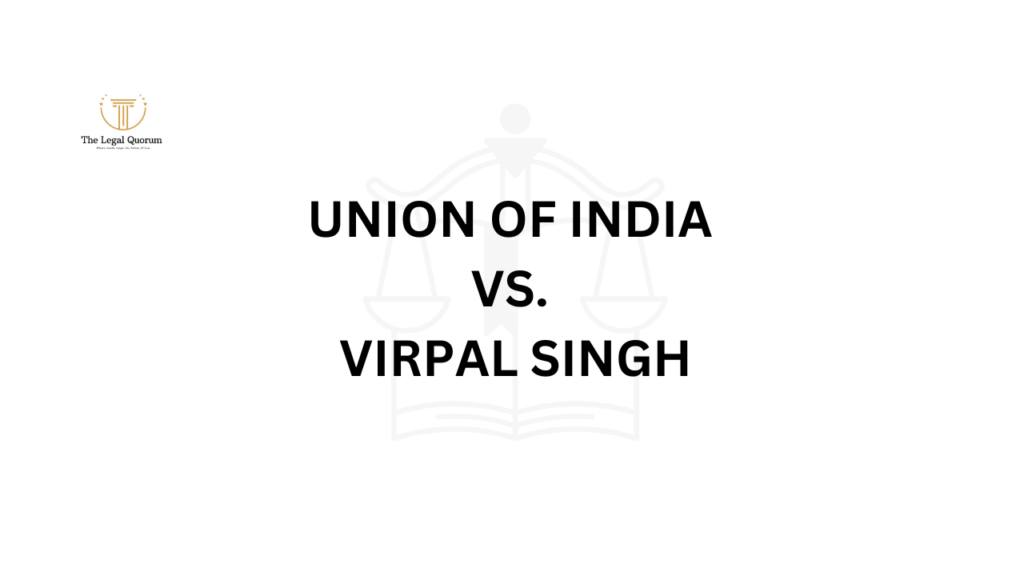Published on 26th July 2025
Authored By: Jiya Sarkar
Sister Nivedita University, Newtown, Kolkata
ABSTRACT
The legal status of an unborn child under Indian law is a complicated and multifaceted one. Although the child in utero is not a “natural person” until birth, Indian law and jurisprudence grant conditional rights to the unborn, subjecting them to legal treatment as persons under certain conditions. This article discusses the juristic personality of the unborn child, discussing its restricted but meaningful legal status through all legislative tools, namely the Indian Penal Code, Criminal Procedure Code, Transfer of Property Act, and the law of succession. Furthermore, personal laws like Hindu and Mohammedan law also illustrate the cultural embedment of unborn rights. While there is fragmented recognition, the unborn child continues to be a neglected stakeholder of law, requiring a harmonious and cohesive legal framework.
Keywords: Unborn child, juristic personality, Indian Penal Code, inheritance rights, Hindu law, Transfer of Property Act, prenatal legal recognition.
RESEARCH METHODOLOGY
This study uses a doctrinal law approach, examining statutory law, judgments, and learned articles to identify the legal position of unborn children in India. Primary sources are laws like the Indian Penal Code, Criminal Procedure Code, Transfer of Property Act, and personal laws. Secondary sources are law review articles, legal commentaries, and case analyses. The research seeks to bring together existing legal regimes and determine areas of shortfall in the protection of the rights of unborn children.
LITERATURE REVIEW
The legal status of unborn children has been debated by many legal writers. Some writers contend that unborn children can enjoy rights only when it is in their interest, whereas other authors point out that Indian laws such as property and succession acts do recognize their rights in certain contexts. Nevertheless, no one uniform law regulates their status. The absence of a uniform law in all areas of law creates uncertainty and restricted protection to the rights of unborn children.
INTRODUCTION
In law, the status of personhood is usually bestowed only upon those who are born alive, hence gaining natural duties and rights.[1] Indian law makes sophisticated exceptions, though, by giving legal beneficiaries’ status to unborn children in certain situations. With this juristic fiction, the law regards a fetus as “already born” in cases of inheritance, wrongful death, and limited criminal protection.[2]Even when such acknowledgment exists in piecemeal and conditional terms, it indicates the existence of an “invisible stakeholder”—one whose rights, albeit embryonic, call for regular and systematic legal treatment.
JURISTIC PERSONALITY AND LEGAL STATUS OF THE UNBORN CHILD
Juristic personality means the status of being legally recognized as capable of having rights and obligations. Though an unborn child cannot be said to possess legal personality in its strictest possible sense, Indian law bestows upon it a conditional personality in instances where the welfare to the child is at stake.[3] Under the principle of legal fiction, infant ventre sa mere (child in its mother’s womb) is so treated when it is advantageous to the child, especially in civil and law of property.[4] However, this is not universal or complete throughout the entire realm of law.
An unborn child is not a legal person in themselves but is treated as one in instances such as inheritance, partition, and even damages for prenatal injuries.[5] This qualified status allows unborn children to be treated with rights such as succession and protection against harm, on condition that they are later born alive.
RELEVANT STATUTES AND PROVISIONS
A few Indian legislations include provisions specifically addressing the rights or protection of the unborn child:
- Indian Penal Code, 1860: Sections 312 to 316 criminalize causing miscarriage or injury to an unborn child. For instance, Section 315 criminalizes an act committed with the intent to avoid a child being born alive or to kill it in the womb.
- Criminal Procedure Code, 1973: Section 416 provides that if the woman convicted of death is pregnant, the execution may be suspended or commuted to life imprisonment. This is a recognition of the right to life and development of the unborn as well.
- Transfer of Property Act, 1882: Section 13 authorizes property to be transferred for the benefit of an unborn individual by way of a prior interest by means of a trust, albeit the interest will only vest upon the child being born alive.
- Indian Succession Act, 1925: Section 114 makes provision for the formation of prior interest in property prior to an unborn child’s birth, subject to the condition that the child must be born alive.
- Hindu Succession Act, 1956: Under Section 20, the rights of inheritance are given to a child in womb and they are treated equally to a living heir, if he/she is born alive later.
At Mitakshara Hindu Law, an unborn child in a coparcenary family can be said to have an interest in the property from conception. Under Mohammedan Law, however, a gift given on behalf of a person who does not yet exist, like an unborn child, is void.
IMPORTANT CASE LAWS
- Githa Hariharan v. Reserve Bank of India (1999)
While not specifically dealing with the rights of the unborn, the Supreme Court in this case insisted that all the rights of the child have to be construed by interpreting them from the prism of the “best interests of the child.” This means that legally, protection could be given to even unborn children when it is in their best interest.[6]
- Said-Ud-Din v. Court of Welfare Commissioner Bhopal Gas Victims Tribunal and Others (1997)
The Supreme Court of India, in this case, held that the unborn child who suffered exposure to the Bhopal Gas tragedy while within the womb was entitled to compensation. The Court acknowledged that life starts at conception, and therefore, any injury done to the fetus could be actionable at law. This case is a strong endorsement of the legal status of unborn children in tort and compensation.[7]
- Manikuttan v. M.N. Baby (2008)
The Kerala High Court recognized the loss of a fetus in a road accident as the loss of a life. It granted separate compensation to the husband on account of the loss of his pregnant wife and the unborn child. This judgment reaffirmed the position that an unborn child may be considered a legal person for the sake of granting compensation.[8]
CHALLENGES AND LEGAL GAPS
Notwithstanding some legislation and judicial acknowledgment, Indian law still remains devoid of a harmonized and systematic body of law in regards to the rights and status of the unborn child. Such recognition continues to be scattered in different branches of law, causing inconsistencies and ambiguities in interpretation and operation.
To begin with, legal recognition of the unborn child is scattered across fields. For example, in law of property and succession, the unborn child is entitled to inherit property if he/she survives,[9] while in criminal law, provisions like Sections 312–316 of the Indian Penal Code punish abortion or homicide of a quick unborn child.[10] But no universal law is present that unifies the above describe recognitions.
Second, the lack of codified legal status of the unborn child leads to uncertainty. There is no law that explicitly states whether the unborn is to be considered a “person” for legal reasons in all situations. This results in uneven protection—the law shields the fetus with respect to injury or miscarriage, but does not recognize it as a distinct legal personage for more extensive rights such as constitutional protection or full personhood.
Third, there is a lingering tension between the rights of the mother and the unborn, most notably evident in the case of abortion legislation. The Medical Termination of Pregnancy Act, 1971, although liberalizing access to abortion, locates the debate largely in terms of the autonomy and health of the woman.[11] It infrequently examines the rights of the fetus, only after exceeding some gestational thresholds. This generates moral and legal issues when interests of the mother and unborn child potentially conflict.
Lastly, and most significantly, the unborn child is not afforded express protection under the constitution of Article 21, which grants protection for the right to life and personal liberty.[12]
Since, under Article 5 or Article 21 of Indian law, the unborn child is not considered a “person” or a “citizen, it escapes the full force of fundamental rights. This exclusion inevitably results in uncertainty in law and throws up ethical questions at a time when greater attention to both protection of children and reproductive rights prevails in society.
Indian law, in general, has allusions to recognition but provides no full legal status to the unborn. A coherent legal system must be in place—one that can balance rights, resolve between conflicts maternal-fetal, and position the unborn neither entirely out of sight nor simply an extension of the mother.
INTERNATIONAL RECOGNITION OF THE RIGHTS OF THE UNBORN CHILD
Globally, numerous jurisdictions have gone one step further in support of the unborn child’s legal protection. Ireland, for example, prior to the repeal of its Eighth Amendment in 2018, constitutionally protected the unborn child’s right to life at an equal level to the mother’s.[13]The Philippines likewise protects fetal rights in its Constitution by entrenching protection from conception. [14]
In contrast, the United States has long followed the trimester standard in Roe v. Wade, on which fetal viability determined the scope of state protection.[15]Although Roe has more recently been overruled, it once served as a global model for balancing maternal autonomy and prenatal interests.[16]
Indian legislation, though, does not establish definitions of terms like viability or constitutional support for the rights of the unborn. Rather, safeguards are scattered throughout civil and criminal legislation, not being consistent or clear. This lack of a cohesive legal position makes the rights of the unborn subject to judicial interpretation or statutory context.
CONCLUSION
The unborn child continues to be a partially visible being in Indian legal thought—recognized for convenience in some laws but refused full-fledged legal personality. Legislative reform is the crying need of the hour that introduces harmony to these dispersed provisions and identifies the rights of the unborn child without eliminating the rights and autonomy of the mother. Finding a balance between them within a framework of rights continues to be the challenge in the future for Indian jurisprudence.
REFERENCES
[1] See P.S. Atiyah & Robert S. Summers, Form and Substance in Anglo-American Law 123–24 (1987).
[2] See The Transfer of Property Act, No. 4 of 1882, § 13, INDIA CODE, https://indiacode.nic.in (last visited June 6, 2025); The Indian Penal Code, No. 45 of 1860, §§ 312–316, INDIA CODE, https://indiacode.nic.in (last visited June 6, 2025).
[3] S.C. Tripathi, Jurisprudence and Legal Theory 198–99 (22d ed. 2022).
[4] The Transfer of Property Act, No. 4 of 1882, § 13, INDIA CODE, https://indiacode.nic.in (last visited June 6, 2025).
[5] The Hindu Succession Act, No. 30 of 1956, § 20, INDIA CODE, https://indiacode.nic.in (last visited June 6, 2025).
[6] Githa Hariharan v. Reserve Bank of India, (1999), available at https://indiankanoon.org/doc/1241462/ (last visited June 6, 2025).
[7] S. Said-Ud-Din v. Welfare Comm’r, Bhopal Gas Victims Tribunal, (1997) 11 S.C.C. 460. available at https://www.casemine.com/judgement/in/56b48ce3607dba348ffef58f (last visited June 6, 2025).
[8] Manikuttan v. M.N. Baby, 2008 ACJ 1497 (Ker), available at https://www.casemine.com/judgement/in/56e66b0e607dba6b53437709/amp (last visited June 6, 2025).
[9]The Transfer of Property Act, No. 4 of 1882, § 13, INDIA CODE, https://indiacode.nic.in (last visited June 6, 2025)
[10] The Indian Penal Code, 1860, §§ 312–316, No. 45 of 1860, INDIA CODE, https://indiacode.nic.in (last visited June 6, 2025).
[11] The Medical Termination of Pregnancy Act, No. 34 of 1971, § 3, INDIA CODE, https://indiacode.nic.in (last visited June 6, 2025).
[12] INDIA CONST. art. 21; see also State of Kerala v. Rajan, (1978) 2 SCC 102, emphasizing the value of life under Article 21, though not extended to fetuses.
[13] See Eighth Amendment of the Constitution Act 1983 (Ir.), available at https://www.irishstatutebook.ie/eli/1983/ca/8/enacted/en/html (last visited June 6, 2025).
[14] CONST. (Phil.), art. II, § 12, available at https://www.officialgazette.gov.ph/constitutions/1987-constitution/ (last visited June 6, 2025).
[15] Roe v. Wade, 410 U.S. 113, 163–64 (1973).
[16] Dobbs v. Jackson Women’s Health Org., 597 U.S. ___ (2022), slip op. at 5–6, available at https://www.supremecourt.gov/opinions/21pdf/19-1392_6j37.pdf (last visited June 6, 2025).




